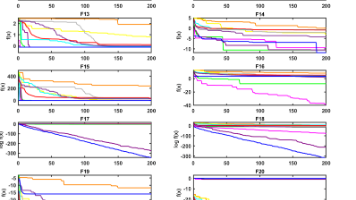【MetaGPT】搜集信息、撰写报告的Researcher Agent案例
# note- MetaGPT是一个多智能体的框架,比如构建成一个软件开发公司的多智能体,包括经理、产品经理、工程师等智能体@[toc]# 一、MetaGPT:The Multi-Agent Framework项目链接:https://github.com/geekan/MetaGPTMetaGPT: The Multi-Agent FrameworkMetaGPT是一个多智能体的框架:- 比如构
note
- MetaGPT是一个多智能体的框架,比如构建成一个软件开发公司的多智能体,包括经理、产品经理、工程师等智能体
React部分里面包含了一个循环,在循环中交替执行_think和_act,也就是让 llm 先思考再行动。
文章目录
一、MetaGPT:The Multi-Agent Framework
项目链接:https://github.com/geekan/MetaGPT
MetaGPT: The Multi-Agent Framework
MetaGPT是一个多智能体的框架:
- 比如构建成一个软件开发公司的多智能体,包括经理、产品经理、工程师等智能体
- 如输入一个需求,输出竞品分析文档、故事、数据结构等
- 构建Standard Operating Procedure (SOP)

多智能体系统的构建方法:
- 明确该系统需要解决的问题和目标
- 创建多个智能体实例(类型、数量、特性),比如分为规划设计、获取新知识、对事物/现象进行评判等的类型
- 定义多智能体之间的交互方式,包括协作、竞争、信息交流等,以及制定协议、策略或博弈论规则
- 考虑系统的可扩展性、安全性、智能体之间的异构性等
- 部署系统,持续监控和维护
二、Researcher Agent
调研员智能体,可以根据用户的调研问题,从搜索引擎上搜索资料并总结,然后生成调研报告。
| 类型 | 名称 | 说明 |
|---|---|---|
| 角色 | Researcher | 调研员智能体,从网络进行搜索并总结报告。通过LLM提示工程(Prompt Engineering),让LLM以调研员的角色去规划和拆分任务,使用提供的工具,完成调研过程,生成调研报告。在定义角色时,会为其注册下面列出的各项工具 |
| 工具 | CollectLinks | 问题拆解,从搜索引擎进行搜索,并获取Url地址列表。该工具基于LLM提示工程和搜索引擎实现,其功能如下:(1) 将问题拆分成多个适合搜索的子问题(基于LLM提示工程)。(2)通过搜索引擎搜索子问题。(3)筛选出与调研问题有关的Url,并根据网站可靠性对url列表进行排序(基于LLM提示工程) |
| 工具 | WebBrowseAndSummarize | 浏览网页并总结网页内容。由两个工具组成:浏览网页和总结网络内容。(1)浏览网页是通过封装的WebBrowserEngine工具访问搜索引擎实现的。(2)总结搜索结果是通过LLM提示工程实现。 |
| 工具 | ConductResearch | 生成调研报告。基于LLM提示工程的工具,该工具会整合WebBrowseAndSummarize的输出给到LLM,让LLM生成调研报告 |
| 记忆 | short-term memory | 短期记忆能力,metaGPT框架封装了短期记忆的能力,用于在任务执行周期内保存和检索上下文记忆,如CollectLinks和WebBrowseAndSummarize等工具的执行结果 |
基于React框架的Researcher Agent思考步骤举例:
推理1:当前知识不足以回答这个问题,要回答该问题,需要知道什么是「特斯拉FSD 」和「华为ADS」
行动1:使用搜索工具搜索「特斯拉FSD 」和「华为ADS」的资料
观察1:总结行动1的内容
推理2:基于行动1和观察1的信息,得知这是关于两个自动驾驶提供商的方案对比,基于已有的信息,现在需要生成报告
行动2:使用生成报告的工具,生成调研报告
观察2:任务完成
(1)输入调研课题:调研特斯拉 FSD 和华为 ADS 这两个自动驾驶系统
python3 -m metagpt.roles.researcher "特斯拉FSD vs 华为ADS"
(2)智能体执行调研
首先根据刚才输入的课题,根据prompt得到多个待搜索的标题,去找一些网页:
["Tesla FSD vs Huawei ADS: A Comparative Analysis of Features and Capabilities",
"How Do Tesla FSD and Huawei ADS Address Safety and Regulation Compliance?",
"A Review of Tesla FSD's Semi-Autonomous Driving Experience Compared to Huawei ADS's Advertising Platform",
"Exploring the Future Development and Potential Impact of Tesla FSD and Huawei ADS on the Autonomous Driving and Advertising Industries"]
(3)对搜集到的网页进行分析、排序:
After reviewing the search results and considering the requirements for accuracy and relevance, I have filtered out the irrelevant results and ranked the remaining based on credibility and relevance. Here are the ranked results:
[1, 4, 2, 6, 3, 7, 0]
**Reasoning:**
- **Result 1** is from Counterpoint Research, which is a known and credible source for market analysis, directly comparing Huawei ADS 2.0 and Tesla Autopilot.
- **Result 4** is from a news article quoting a senior executive of Huawei, which provides a direct comparison and a statement on the rivalry between the two systems.
- **Result 2** is from a YouTube video, which may be less credible than research articles or news sources, but it directly addresses the comparison between Tesla FSD and Huawei ADS, making it relevant.
- **Result 6** is from TechInsights, which provides an in-depth analysis of Tesla's FSD features, performance, and limitations, which is relevant for a comparative analysis.
- **Result 3** is a news article explaining Tesla's FSD in the context of China, which is relevant to the topic but less specific about the comparison.
- **Result 7** is from InsideEVs, which discusses how Tesla's FSD has influenced the market in China, including the emergence of equivalent systems, which is relevant to the comparative analysis.
- **Result 0** is from MIT Technology Review, which is a credible source, but the snippet does not directly indicate a comparison between Tesla FSD and Huawei ADS, making it less relevant than the other sources.
I have omitted the other results that were not directly related to the comparison of Tesla FSD and Huawei ADS or were less credible/relevant.
(4)走function call:
工具:CollectLinks:拆解问题,搜索并返回url;WebBrowseAndSummarize:浏览网页并总结网页内容;ConductResearch:生成调研报告等。
其中浏览网页并总结的栗子如下:
### 特斯拉FSD与华为ADS对比分析:功能与能力
特斯拉的Full Self-Driving(FSD)和华为的Autonomous Driving Solution(ADS)都是目前自动驾驶领域的先进技术。以下是基于提供的信息对两者进行的比较分析:
**特斯拉FSD:**
- 特斯拉的FSD旨在提供完全自动驾驶的体验,其功能包括自动导航、自动变道、自动泊车以及在交通中的自主行驶。
- FSD通过使用一系列的传感器,包括摄像头、雷达和超声波传感器,来实现对周围环境的感知。
- 根据提供的信息,特斯拉的FSD在多种驾驶场景中进行了深入的分析,涵盖了其传感技术、实际驾驶行为等多个方面。
- 特斯拉的FSD技术持续通过OTA(Over-The-Air,远程升级)的方式更新,不断改进其性能和功能。
**华为ADS:**
- 华为的ADS是华为在自动驾驶领域的关键技术,其特点是强调“端到端”的自动驾驶解决方案,覆盖了从感知、决策到执行的整个过程。
- 华为ADS依赖于其强大的AI处理器和传感器系统,包括激光雷达、摄像头和毫米波雷达等,以实现高精度的环境感知和决策。
- 华为ADS在多个实际道路测试和示范项目中展示了其能力,尤其在复杂交通环境和城市道路上的表现。
**对比分析:**
- **技术成熟度:** 特斯拉FSD已经在大量的车辆上进行了部署,并通过实际使用收集了大量数据,这有助于其技术的迭代和成熟。华为ADS虽然相对较新,但华为在通信和AI领域的深厚技术积累为其提供了强大的技术支持。
- **传感器配置:** 特斯拉依赖于较为经济的传感器配置,而华为则采用了更为先进的激光雷达等传感器,理论上可以提供更高的感知精度。
- **应用范围:** 特斯拉FSD目前主要应用于乘用车市场,而华为ADS则有意在乘用车、商用车以及智慧交通等多个领域进行布局。
需要注意的是,上述分析基于提供的信息摘要,具体的技术细节和性能比较需要进一步的专业评估和实际测试数据。自动驾驶领域发展迅速,两家公司的技术也在不断进步和更新,因此对比分析也会随之变化。
三、源码分析
Researcher类继承自Role父类,Role类执行Role.run时的流程图如下:
最重要的部分是 React,里面包含了一个循环,在循环中交替执行 _think 和 _act,也就是让 llm 先 思考 再 行动。_think 中决定了 llm 下一个执行的 动作 是什么,这个 动作 会放到 self._rc.todo,而在 _act 中会执行 self._rc.todo 中放的 动作。放置 action obj 到 todo 是使用 _set_state。
在_think中会将一些角色信息,动作信息拼成prompt然后传给llm。
总的来说,_think就是希望通过问询llm得到一个数字,这个数字就是需要执行的动作,是一个self._actions动作列表中的索引。
1. Role._react函数
Role._react函数代码如下:
# 做了什么事?
_react有两个重要的函数:_think、_act,代表了思考和行动。他们交替运行:
_think -> _act -> _think -> _act -> ...
1.跟踪已经执行的动作次数,每次执行_act,则actions_taken += 1
2.在循环中,不断调用_think和_act,直到达到最大循环次数为止
在循环中,没有待办事项时,只思考,不行动
3.返回最后一个动作的输出作为结果。
async def _react(self) -> Message:
'''
先思考,然后行动,直到角色认为是时候停下来了,不再需要做更多的事情。
这是ReAct论文中标准的思考-行动循环,它在任务解决中交替思考和行动,
即_think -> _act -> _think -> _act -> ...
使用llm动态地选择_think中的动作
'''
# 用于跟踪已经执行的动作次数
actions_taken = 0
rsp = Message("No actions taken yet") # 在角色_act之后被覆盖
# 不断进行思考和行动,直到达到最大循环次数为止
while actions_taken < self._rc.max_react_loop:
# 进行思考
await self._think()
# 没有待办事项时,不行动
if self._rc.todo is None:
break
# 进行行动
logger.debug(f"{self._setting}: {self._rc.state=}, will do {self._rc.todo}")
rsp = await self._act()
# 计算行动次数
actions_taken += 1
2. Research._act函数
async def _act(self) -> Message:
logger.info(f"{self._setting}: to do {self.rc.todo}({self.rc.todo.name})")
todo = self.rc.todo
msg = self.rc.memory.get(k=1)[0]
if isinstance(msg.instruct_content, Report):
instruct_content = msg.instruct_content
topic = instruct_content.topic
else:
topic = msg.content
research_system_text = self.research_system_text(topic, todo)
# 1. 从搜索引擎搜集链接
if isinstance(todo, CollectLinks):
links = await todo.run(topic, 4, 4)
ret = Message(
content="", instruct_content=Report(topic=topic, links=links), role=self.profile, cause_by=todo
)
# 2. 浏览网页并生成摘要
elif isinstance(todo, WebBrowseAndSummarize):
links = instruct_content.links
todos = (
todo.run(*url, query=query, system_text=research_system_text) for (query, url) in links.items() if url
)
if self.enable_concurrency:
summaries = await asyncio.gather(*todos)
else:
summaries = [await i for i in todos]
summaries = list((url, summary) for i in summaries for (url, summary) in i.items() if summary)
ret = Message(
content="", instruct_content=Report(topic=topic, summaries=summaries), role=self.profile, cause_by=todo
)
else: # 3. 进行研究并生成报告
summaries = instruct_content.summaries
summary_text = "\n---\n".join(f"url: {url}\nsummary: {summary}" for (url, summary) in summaries)
content = await self.rc.todo.run(topic, summary_text, system_text=research_system_text)
ret = Message(
content="",
instruct_content=Report(topic=topic, content=content),
role=self.profile,
cause_by=self.rc.todo,
)
# 短期记忆(拼接工具的执行结果)
self.rc.memory.add(ret)
return ret
Reference
[1] https://github.com/geekan/MetaGPT
[2] https://huggingface.co/spaces/deepwisdom/MetaGPT-SoftwareCompany
[3] MetaGPT 研究员:让 AI 帮你搜集信息、撰写报告
[4] AutoGPT:自动化GPT原理及应用实践
[5] BabyAGI and AutoGPT - which one to choose:https://lablab.ai/blog/babyagi-and-autogpt-which-one-to-choose
[6] 自动代理机器人:BabyAGI,Auto-GPT,CAMEL等
[7] ReAct,Self-Ask,Plan-and-execute,以及AutoGPT, HuggingGPT等应用
[8] 多智能体框架搭建指南 ——MetaGPT
[9] MetaGPT day02: MetaGPT Role源码分析
更多推荐
 已为社区贡献20条内容
已为社区贡献20条内容







所有评论(0)